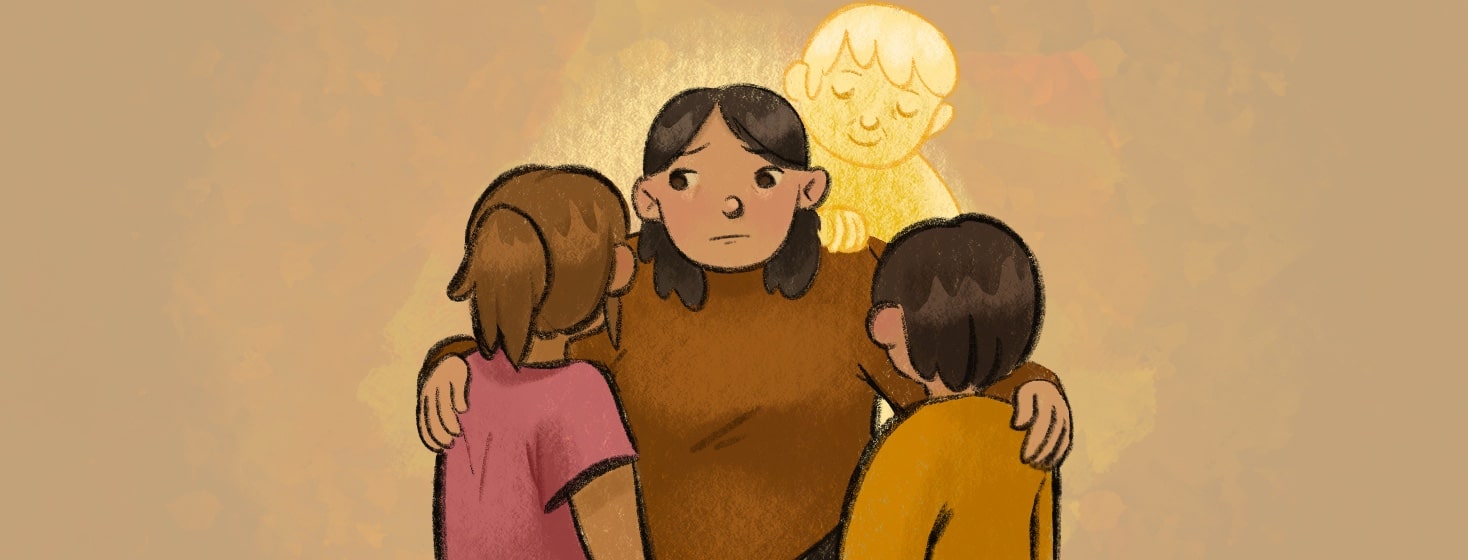Talking To Teenagers About Alzheimer’s
When I was first diagnosed with early-onset Alzheimer's disease, my first thought was of my kids. I was surprisingly calm when I was diagnosed because I already knew.
My mother lost her battle with the disease at the age of 63, and two of her brothers lost their battle at 62 and 64. The journey that my kids are now on is a familiar one to me. Unfortunately, it is uncharted territory for them.
Going through this same journey with my mother gave me the words to say to my kids. It is beneficial to be in someone's shoes with information like this. I wanted them to know that I, too, had been there and did know what they were feeling.
Tools for battle
There are several different things that I think are important to the well-being of these young people. These kids are the collateral damage of this battle, and they need to be armed with the proper tools to help them navigate this new unknown future.
While I am not an expert on early-onset Alzheimer's, I am an expert on loving my kids. I am also an expert on being the child of a parent with EOAD. I spent a lot of time thinking back on what I wish I had known, what I felt, and what I wished my mother could have given me.
These are the things I believe are absolutely imperative.
Honesty, once again, is the best policy
The first thing teenagers need is honesty. These kids don't need to be sheltered; they need information and therapeutic communication. Keeping the details of the disease from them does not protect them from the hurt and loss they will face. However, it will leave them navigating this journey blindly.
I was very honest and open with my kids. I told them what was happening to my brain and how it would eventually affect my ability to control what I said or did.
Don't hide your feelings or emotions from your kids. You are all going through this together. It's okay to let them know when you are struggling. Teenagers are tough and resilient. They will, however, need time to process and may be angry or lash out at you. They may not know what to do with emotions and fear.
Reassurance
The second thing imperative for teens on this unwanted journey is reassurance. When my 17-year-old gets angry or lashes out, I know it comes from fear and emotional turmoil. Teenagers' development level is focused on themselves and how this will affect them.
I will continually reassure him that he is strong, capable, and can do hard things, and validate his pain and anger. They need reassurance that their feelings are normal and it is okay to be angry and sad. It is okay to want to punch something. Offer to get them a punching bag if they need it.
I told them something that I wish my mother had told me. "No matter what my brain is doing, you must always remember what I am telling you now. You are loved beyond measure. You are beautiful, intelligent, compassionate, and strong kids, and I will always be thankful that God made me your mom."
I explained this process to my kids through the lens of my personal faith and beliefs. I told them my brain is organic, and our bodies were designed to deteriorate and die, but our spirit remains untouched.
My spirit is whole and healthy, and while I may not be able to control my body to express it, my soul will still love you, even if I say something horrible. It is especially important to address this early on.
I pray these words will resound in their heads when that time comes.
Find your tribe
The third thing teens need is a tribe. This will look different to each family. It is important to seek out your support system. This is an individual decision that will look different for each family.
Seeking assistance from professionals, support groups, faith groups, or extended family are all positive steps to help kids deal with this traumatic and difficult journey that involves the whole family.
I personally don't know how I would do this without my God and faith community. For my family, our faith and belief are the cornerstones of our existence.
Talking to your teens about Alzheimer's
I encourage families in this situation to seek out these resources. My church family has been an extension of the love and care, and support that my family needs. I don't know how I would get through this if I thought this was all there was.
This connection and support of the family are so important to those battling this disease. It truly is a family disease, and no one is left untouched. We are warriors in this battle. Help is available, and no one has to go through this alone.

Join the conversation